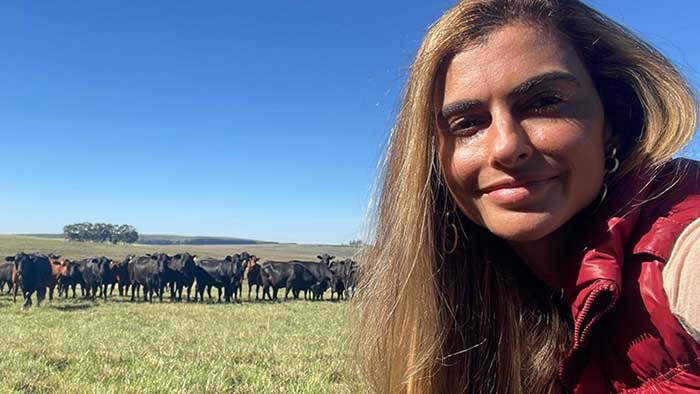The Instituto Desenvolvimento Pecuária elected the new board of directors for the three-year period 2024/2027 by acclamation. Creator Antonia Scalzilli and creator Ivan Faria took over as president and vice-president of the entity, which celebrates its third anniversary this April. The two were in charge of the Rural Crimes and Market Relations committees, respectively, in the previous administration. Also part of the executive board are Fernanda Brum as administrative director and Morgana Dalpiaz, as financial director.
Lawyer and breeder of Angus and Brangus on properties in Bagé and Cacequi, Antonia Scalzilli based her work with the Institute on defending the creation of public policies effectively aimed at the safety of rural men and women. Therefore, she considers that assuming the presidency of the entity is a great challenge, as she will add the specific security agenda to broader and equally relevant themes. “When I started to be part of the institute, I was enchanted and identified a lot with the values of the people who were there, the way the institute was created, through cutting-edge rural producers, people who do not settle inside their properties simply by looking for tribulations, which seek to resolve problems; It moves me and made me want to be part of it,” she explained. Antonia said that she welcomes the Institute, which was born strong, ready for a new moment. “We need to work actively, with leadership. Our voice must echo beyond our gates. We have to come together and, together, seek to resolve the adversities that are common to us, livestock farmers. Being at the head of an institution means being sensitive to what afflicts its members. Rio Grande do Sul’s livestock industry needs to return to the podium”, announced the new leader.
At the head of the Institute since its creation, Luis Felipe Barros uses the word “provoke” to summarize three years of work in favor of livestock farming in Rio Grande do Sul. “We gained very important institutional access, we had the merit of carrying out a management that had many institutional relationships, so obviously we relied heavily on solid institutions such as Farsul, Febrac, Federasul, among others”, said the former president.
Regarding the beginning of the institution, Luis Felipe Barros said that it was a challenge to legalize a WhatsApp group made up of 200 people who gradually understood that the Institute was being seen. The former leader recalled that everything started to defend the interests of the original group, but that it became a voice for livestock farming, with increasing demand from the press and people within universities. “This management begins reenergized, but with other challenges. The Institute has to become an Ocip in order to have projects and raise funds, because without funds we cannot evolve the projects and we also cannot remain just a provocative entity”, stated Barros. He highlighted that the new president is an extremely qualified person, who already has the political experience and skills for this.






